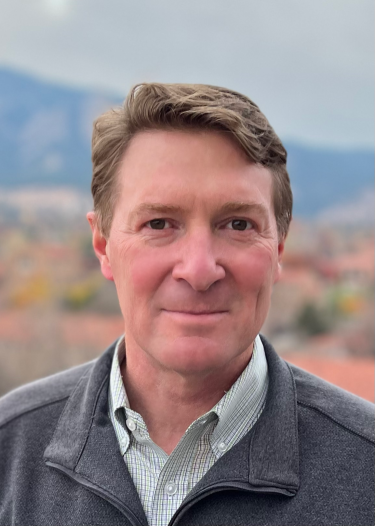 Scott Diddams, the Robert H. Davis Endowed Chair in Discovery Learning and Professor at CU Boulder, has been named an Institute of Electrical and Electronics Engineers (IEEE) Fellow for his contributions in optical frequency combs and their applications.
Scott Diddams, the Robert H. Davis Endowed Chair in Discovery Learning and Professor at CU Boulder, has been named an Institute of Electrical and Electronics Engineers (IEEE) Fellow for his contributions in optical frequency combs and their applications.
IEEE Fellow is a distinction reserved for members whose extraordinary accomplishments are deemed fitting of this prestigious honor. IEEE is the world’s largest technical professional organization dedicated to advancing technology for the benefit of humanity.
“I am very grateful for this honor and want to acknowledge that it also reflects on the excellent work of the students, postdocs and colleagues who have advanced and enriched my career in so many ways,” Diddams said.
Diddams, based in the Department of Electrical, Computer and Energy Engineering and the Department of Physics at University of Colorado Boulder, carries out experimental research in the fields of precision spectroscopy and quantum metrology, nonlinear optics, microwave photonics and ultrafast lasers.
Diddams received his PhD degree from the University of New Mexico in 1996 and completed his postdoctoral work at JILA. He also spent time as a research physicist, group leader and fellow at the National Institute of Standards and Technology.
In 2022, he joined the CU Boulder faculty, where he also assumed the role of faculty director of the Quantum Engineering Initiative in the College of Engineering and Applied Science.
As a postdoc, Diddams built the first optical frequency combs in the lab of CU Boulder Nobel Laureate John Hall. Throughout his career, he has pioneered the use of these powerful tools for optical clocks, tests of fundamental physics, novel spectroscopy and astronomy.
The work of Diddams and his research group has been recognized by multiple awards including the Distinguished Presidential Rank Award through the U.S. Office of Personnel Management, the U.S. Department of Commerce Gold and Silver Medals for revolutionizing the way frequency is measured, the Presidential Early Career Award in Science and Engineering (PECASE) and the C.E.K. Mees Medal, among others.



